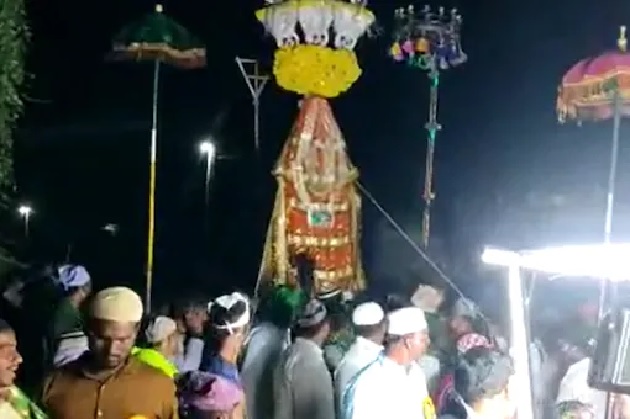
Hindus of Hirebidanur village in Karnataka, have developed their own ways of commemorating the holy month of Muharram, even tough there are no Muslim families living here.
During Muharram, Muslims grieve the death of Prophet Imam Hussain at the battle of Karbala, and the month is dedicated to mourning and introspection. However, as there are no Muslim families among the nearly 3,000 residents of the village located in the Saudatti taluk of Belgavi district, it is the non-Muslim villagers, mainly hailing from Valmiki and Kuruba communities, who have taken it upon themselves to observe traditions.
According to a News18 report, communal harmony can be seen at the Mosque of Fakireshwar Swamy, the name itself a sign of India’s syncretic and plural culture – Fakir (an Urdu word for an alms seeker), Eshwar (a Sanskrit word for God) and Swamy (a Sanskrit word for acetic) all come together to form the name of the acetic to whom the shrine is dedicated.
The Mosque was built by two Muslim brothers long ago. Now, every Muharram, a Muslim cleric from the neighbouring village stays at the Mosque and performs traditional Islamic prayers, while a Hindu priest also visits the mosque to offer Hindu prayers. Villagers also come here to fulfill their vows. `
“We invite a moulvi from nearby Bevinakatti village during Muharram every year. He stays in the mosque for a week and offers prayers in the traditional Islamic way. On other days, I take the responsibility of the mosque,” Yallappa Naikar, a Hindu priest, told Times of India.
In another example of how villagers commemorate Muharram, residents bearing torches carry out a colourful procession and carry traditional tajias to the tunes of folk music. This is followed by a village fair where children exhibit folk art. Villagers told the publication, this tradition has been going on for over a century.
Related:
Everyday Harmony: Kashmiri Pandits welcome back Hajis with Na’at recital
Everyday Harmony: Muslim employer performs last rites of Hindu employee
Everyday Harmony: Muslim groups organise drinking water in flood ravaged Silchar